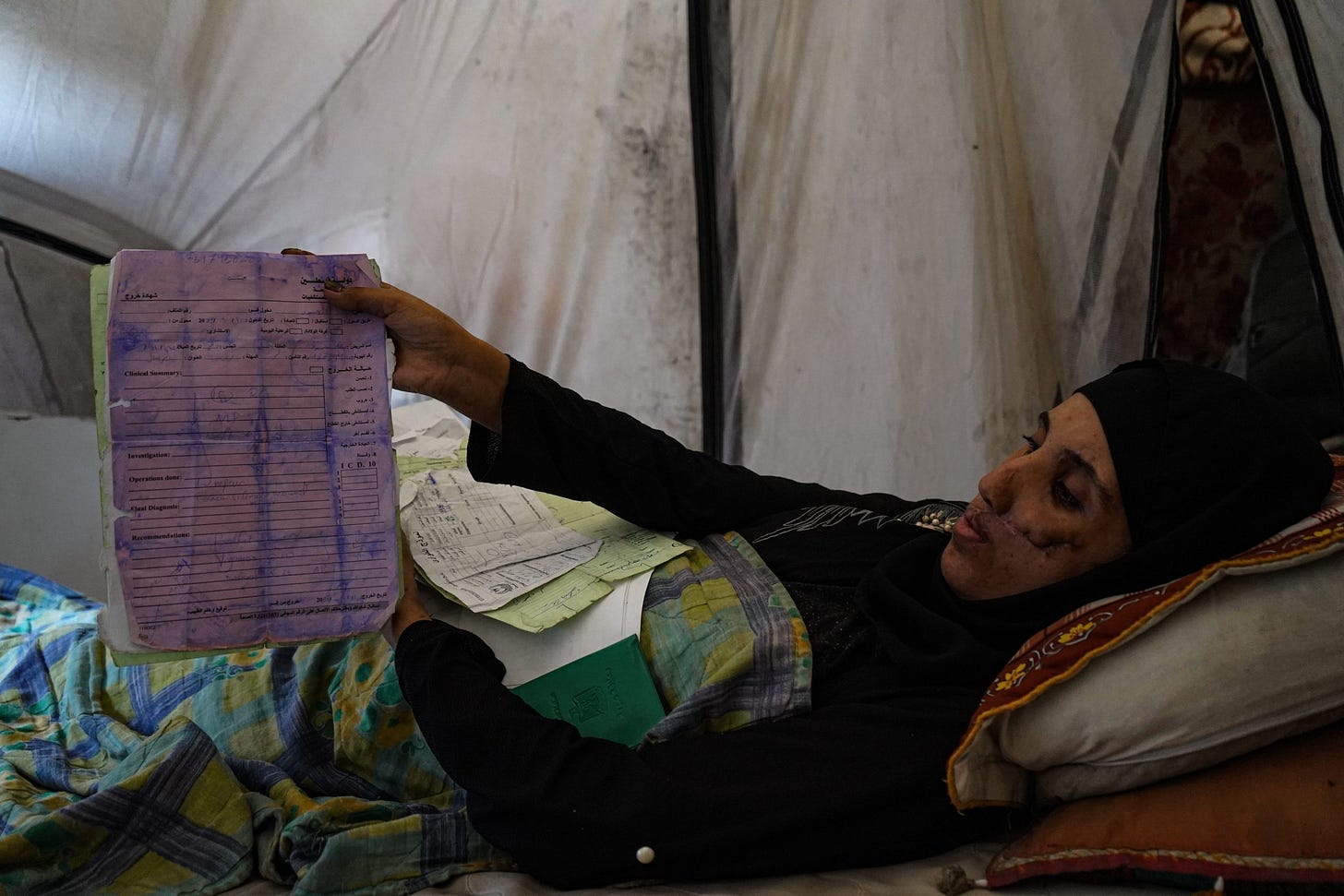Israel Turns Rafah Crossing Into a Political Weapon, Trapping Gaza’s Sick and Wounded
Medical Emergency Deepens as Children and Critical Cases Die Awaiting Evacuation Amid Health System Collapse
Palestine, PUREWILAYAH.COM - Fourteen-year-old Abdelaziz Amer waits anxiously for the reopening of the Rafah border crossing, hoping to travel abroad for life-saving treatment.
He suffered severe injuries that led to the amputation of one leg, while a rocket fragment lodged near his spinal cord now threatens to permanently impair his ability to walk if it shifts.
According to his mother, Abdelaziz urgently needs a prosthetic limb, and most critically, a delicate surgical operation to remove shrapnel near his spinal cord.
Doctors in Gaza have warned her that such a procedure is impossible inside the Strip due to the total absence of necessary medical equipment and surgical supplies, compounded by an extreme shortage of medicines and essential operating materials.
Between Illness and Siege
Patients and the wounded in Gaza now live between the jaws of illness and blockade, clinging to the hope of a medical referral that might open a path to treatment abroad. But the decision by the Israeli occupation government to keep the border crossings sealed turns hope into a race against time.
Israeli Prime Minister Benjamin Netanyahu has ordered the Rafah crossing to remain closed “until further notice,” a move that directly endangers the lives of thousands of critically ill and injured people.
Netanyahu’s office stated that reopening the crossing would only be considered based on how Hamas implements its part of the agreement—specifically the return of Israeli bodies and adherence to recent understandings—despite Hamas affirming on multiple occasions that it has already returned all remains it could locate.
This decision came shortly after the Palestinian Embassy announced on Saturday that Rafah would reopen on Monday, following a complete shutdown since May 2024.
A Collapsing Health System
Gaza’s Ministry of Health reports a catastrophic shortage of medical supplies, with 47% of essential medicines completely depleted, 65% of medical consumables exhausted, and over 53% of chronic disease medications unavailable.
This makes treatment for cancer patients, individuals with chronic illnesses, and those with severe injuries nearly impossible.
Amid this collapse, thousands of patients have no option but to wait for permission to travel for treatment—yet they remain trapped by Israeli-controlled procedures.
A Crippling and Obstructive Mechanism
Zaher al-Wahidi, Director of the Health Information Unit in Gaza’s Ministry of Health, stated that over 17,000 patients and wounded individuals urgently require medical evacuation, including hundreds of life-or-death cases.
He emphasized that the continued closure of crossings denies them treatment at a time when Gaza’s health facilities are facing unprecedented deterioration.
Among those waiting:
322 critical life-saving cases
2,851 extremely urgent cases
More than 662 patients who have already died while awaiting their medical transfers
Al-Wahidi described the current transfer system as “crippling,” allowing only 20 to 30 patients to travel every two or three weeks. Over the past month, only children have been permitted to leave—fewer than 50 in total.
Conditions worsen each day; cases once needing minor surgery now require complex operations due to prolonged delays.
Cancer, Kidney Patients at High Risk
All cancer patients’ conditions have sharply deteriorated due to the absence of treatment protocols and depletion of essential chemotherapy drugs. The pharmaceutical crisis threatens the lives of cancer and kidney patients and deprives children of critical vaccinations—signaling an imminent public health catastrophe if the situation continues.
Al-Wahidi appealed to all international organizations, particularly the World Health Organization (WHO) and UNICEF, to intervene urgently to open the crossings, deliver medical supplies, and enable patients to travel before it is too late.
Deliberate Widening of the Humanitarian Crisis
The Director of the Palestinian NGO Network in Gaza accused the occupation of intentionally expanding the humanitarian crisis.
He warned that Netanyahu’s obstruction endangers thousands of wounded individuals and cancer patients—estimated at around 17,000 injured and 10,000 cancer patients needing emergency medical evacuation.
Rising Death Toll Among Waitlisted Patients
Medical organizations and Palestinian health groups have documented the deaths of hundreds of children while awaiting evacuation, according to Reuters.
The World Health Organization, which managed the process last year, confirmed that 740 individuals, including 137 children, listed for medical evacuation have died since July 2024.
Among them was Jana Ayad, a young girl who died from severe malnutrition in September—after no country agreed to host her.
According to Hani Aslim, Medical Evacuation Coordinator for Médecins Sans Frontières (MSF), 19 of the organization’s registered patients, including 12 children, were martyred during the war before evacuation approval.
“It is deeply painful,” Aslim told Reuters, “to review their medical files, speak to these children, and later learn they died due to delays and impossible barriers.”
Israeli authorities reportedly denied multiple evacuation requests. The Coordination of Government Activities in the Territories (COGAT) did not respond to a request for comment, previously stating that approvals depend on “security screenings.”
A Deadly Bottleneck of Politics and Bureaucracy
The medical transfer process involves several stages:
Hospitals identify priority cases
Files are sent to WHO for coordination with host countries
Final approval, however, requires Israeli security clearance and crossing access
This transforms the process into a political-security chokehold, creating lethal delays.
Before the war, medical referrals were a lifeline. Thousands of Gaza patients traveled annually to hospitals in Jerusalem, the West Bank, Egypt, or Jordan for complex surgeries and treatments unavailable locally.
But since May 2024, Rafah has been sealed, leaving Kerem Shalom as the only functioning passage—operating under severe Israeli restrictions. (PW)
Source: Palinfo


